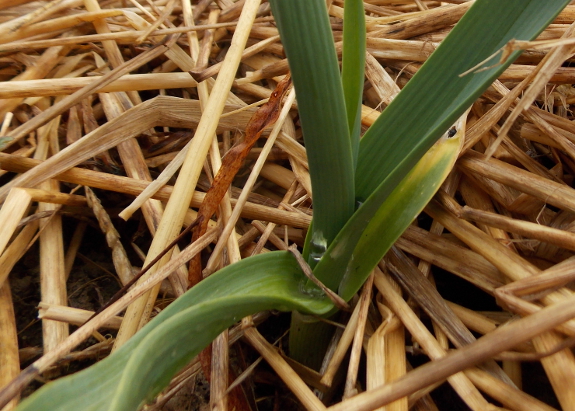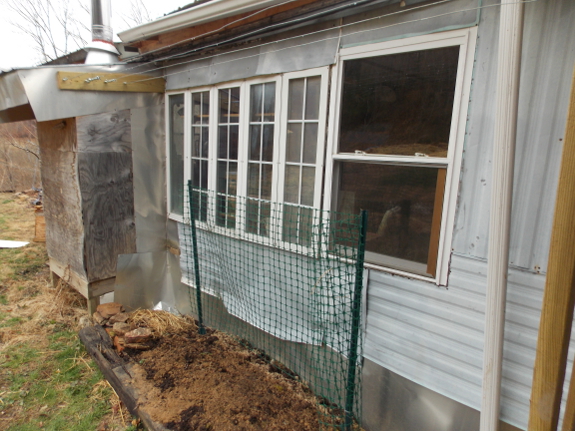
Early spring gardening

While I wasn't looking,
the garden started to grow. I'd been a bit concerned that our
overwintering garlic couldn't stand this winter's extremes, but the
plants are starting to push out new leaves. The rye cover crop
I have on other beds is also filling in and growing up, and I can see
hints of new leaves amid the strawberries. I try to ignore my
father's South Carolina reports of first asparagus, though --- I don't
expect to see any of that for at least two weeks, if not longer.

Although I'm planting
little bits and pieces of early crops in the main gardens, my eye is
most drawn to the sunny patch in front of the trailer. Due to Mark's hard work on the gutter and Kayla and my dirt-hauling,
the ground there is finally well-drained enough to grow non-aquatic
plants, so I've put in some peas to begin shading the window before the
kiwi and grapes get their feet under them. The old saying goes
that perennial vines take three years to get established: first they
sleep, next they creep, and finally they leap. During those
sleeping and creeping years, I'll fill in their habitat with something
annual.
Want more in-depth information? Browse through our books.
Or explore more posts by date or by subject.
About us: Anna Hess and Mark Hamilton spent over a decade living self-sufficiently in the mountains of Virginia before moving north to start over from scratch in the foothills of Ohio. They've experimented with permaculture, no-till gardening, trailersteading, home-based microbusinesses and much more, writing about their adventures in both blogs and books.
Want to be notified when new comments are posted on this page? Click on the RSS button after you add a comment to subscribe to the comment feed, or simply check the box beside "email replies to me" while writing your comment.

I came across this quote by Thomas Jefferson on June 28, 1793 to George Washington. "Good husbandry with us consists in abandoning Indian corn and tobacco, tending small grain, some red clover following, and endeavoring to have, while the lands are at rest, a spontaneous cover of white clover. I do not present this as a culture judicious in itself, but as good in comparison with what most people there pursue."
Reading between the lines, Thomas is suggesting to avoid mono-crops and building the soil over a series of cover crops, each with various reasons why each helps build the soil. (I have no idea what the difference between red and white clover are, however.)